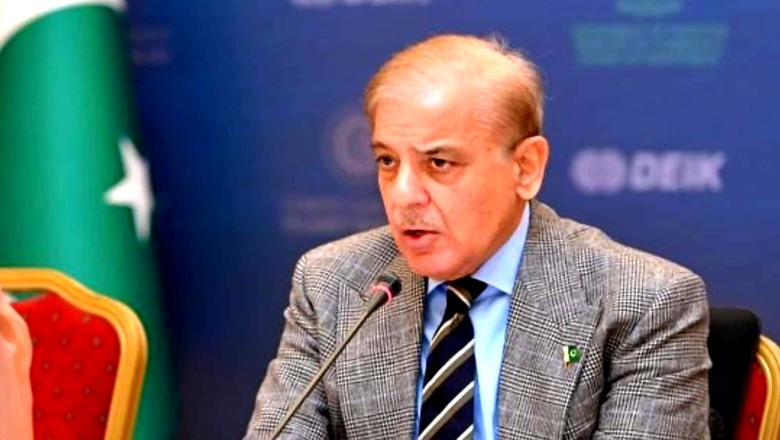
views
The Pakistan government may not be able to promulgate an ordinance to impose new taxes of Rs 170 billion this month as President Arif Alvi has asked finance minister Ishaq Dhar to approach Parliament regarding the plan.
The new taxes will be a setback for the citizens who are already dealing with high food prices and energy costs, officials and analysts have warned.
Pakistan is struggling with recovery from the 2022 floods that killed 1,739 people and destroyed 2 million homes. And Prime Minister Shehbaz Sharif is trying to avoid a default amid a worsening economic crisis after a stalemate on talks between his government and International Monetary Fund (IMF).
The IMF has been delaying the release of crucial $1.1 billion portion of a 2019 deal worth $6 billion since December over Pakistan’s failure to meet the terms.
According to sources, the virtual meeting between the government and Pakistan will start today.
According to a top source in the Pakistan’s finance ministry, the federal government has asked the defence ministry to cut down the defence budget by 10%-15% as per IMF’s condition. But the ministry, however, in the consultation with Army General Headquarters (GHQs), has said only 5% to 10% can be cut in non-combat budget.
As the Pakistani security forces are facing internal and external threats, the forces are engaged on the Pak-Afghan border and have huge threats from Tehreek-i-Taliban Pakistan (TTP) and militants in Balochistan and Khyber-Pakhtoonkhwa provinces, the source added.
It is learnt that Pakistan may appeal to its security partner countries like the US, States, UAE, Saudi Arabia and China to bail them out from the current economic crisis by depositing $10-12 billion in the State Bank of Pakistan.
For collection of Rs 170 billion in the remaining period of the current fiscal year, the government will have to impose taxes of Rs 453 billion.
Imposing the increased GST rate by 1% will fetch Rs 50-55 billion in the remaining period of the current fiscal year.
The IMF also demands implementing the revised Circular Debt Management Plan by hiking the electricity tariff in the range of Rs 8-11 per unit, removing untargeted subsidies under Zero Rating Industries (ZRI), doing away with the Kisan package, increasing gas tariff up to 25-30% on average and securing confirmation from bilateral, multilateral and other avenues to generate dollar inflows in the range of $12 to $13 billion.
The other taxation measures include hiking the tax rates on cigarettes, beverages, real estate transactions and expensive vehicles.
The Federal Board of Revenue of Pakistan’s tax collection will be jacked up proportionally so the annual tax collection target will go up to Rs 7,640 billion.
Read all the Latest News here

















Comments
0 comment